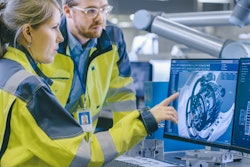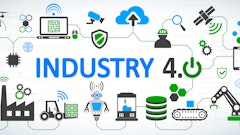
Recent trend data points to a future supply chain that will be more digital, data-driven and predictive than ever before. Whether a company is able to realize all the benefits of that system will depend on supply chain leaders having the right skills to make decisions about the technology, information and people that are part of these digitally enabled, sophisticated supply chains.
Russell Reynolds Associates’ 2021 Global Leadership Monitor found that 59% of global executives identify low availability of talent with the right skills as a threat to their business. That percentage is even higher within the supply chain space. This is a key consideration as we continue to watch the talent market for top supply chain roles.
In fact, filling executive supply chain roles are centered around finding leaders who can balance the operational, technical and human aspects required for successfully managing today’s supply chain. Importantly, the technology component is only going to amplify going forward, so building a pipeline of technically competent leaders is critical.
As we continue to witness a transforming supply chain, the focus is on helping companies understand both the skills needed and talent available to not just lead, but ultimately make sourcing strategies and logistics a competitive advantage.
When it comes to skills, there are two factors shaping the ideal skillset needed for success -- technical savvy and analytical ability. It’s no surprise that as systems become more digital and data-driven, leaders must have both technical expertise and the ability to analyze big data so they can apply learnings based on insights uncovered from that data.
Studies say more than half of companies today are investing in artificial intelligence applications and advanced analytics capabilities within their supply chains. That number is on the rise as the Coronavirus disease (COVID-19) pandemic uncovered vulnerabilities in many systems around the world.
For example, many supply chain leaders now have people in technology roles as direct reports, responsible for making important decisions about technology investments. While they don’t need to have the technical expertise to understand something as specific as coding, they do need to have enough knowledge to ask the right questions and make the right decisions to deliver on supply chain objectives. This includes being able to determine what systems and resources are needed as well as the risks and opportunities that come with new technologies.
Data science and analytics is another area where leaders need competency. While big data has the potential to drive better decision-making and plays a key role in the resiliency and predictive nature of a supply chain, it is often complex and requires both scientists and systems to realize that potential. When thinking about it from a leadership perspective, look for experience and qualities that get the best out of those people and resources. It goes beyond the ability to understand and interpret big data. Leaders must have a big picture mindset. This is someone who can see specific insights within the context of the entire supply chain.
Beyond the technical skills needed, there are some soft skills more important in this new environment. First is the ability to collaborate. While many will point to this as a price of entry for leadership, it is even more important, as building resilient and agile supply chains requires leaders to partner beyond the organization, often with suppliers and even with customers. Previously, organizations were able to use data to collaborate amongst teams within their walls. Now companies can pull and analyze data deep into their supply chains. Collaborating with every organization, team and person that touches the system will drive optimization.
Another key skill evident as supply chains continue to transform is the ability to adapt. Technology and data have enabled real-time or nearly real-time insight into the supply chain, allowing leaders to immediately identify potential risks or opportunities. The ability to remain flexible and make quick decisions to either solve or capitalize on what’s happening across the system could be the difference between simply being effective and creating a competitive advantage.
When it comes to building supply chain leadership of the future, the focus should be on talent that can drive success for both the current and future state of their supply chains. Sometimes, the system will require a leader with the expertise and skills outlined here. Other times, a leader with these skills and expertise will accelerate the transformation of the supply chain. Either way, the importance of the right leader remains vital to the success of the supply chain function.



















